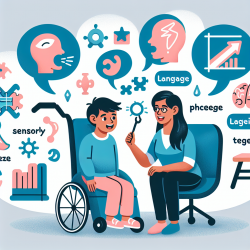Introduction
As practitioners in the field of speech language pathology and therapy, our mission is to create the best possible outcomes for children and individuals from diverse backgrounds. The recent systematic review by Chowdhary et al. (2014) provides insightful data on how cultural adaptations of psychological treatments can significantly enhance their effectiveness, especially for depressive disorders. Understanding these adaptations can empower us to make informed, data-driven decisions in our practice.
The Importance of Cultural Adaptations
Psychological treatments (PTs) are traditionally developed within specific cultural contexts, which can limit their universal applicability. The review highlights that adapting these treatments to incorporate culturally relevant elements is crucial. This adaptation not only increases the acceptability and satisfaction of the treatment but also its effectiveness. For children, whose cultural contexts and familial environments significantly influence their development, these adaptations can be particularly impactful.
Key Findings from the Systematic Review
The review analyzed 20 studies and found that cultural adaptations primarily occur in three dimensions: language, context, and the therapist delivering the treatment. The meta-analysis revealed a statistically significant benefit in favor of the adapted treatments, with a standardized mean difference (SMD) of -0.72, indicating a strong effect size.
- Language: Adaptations often involve using colloquial expressions and culturally relevant idioms, which make the therapy more relatable and understandable for the patient.
- Context: Incorporating cultural symbols, metaphors, and local practices into the treatment framework helps in addressing the unique needs of the population.
- Therapist Matching: Ensuring that therapists are culturally competent and, where possible, share similar cultural backgrounds with the patients enhances the therapeutic relationship.
Implications for Practitioners
For practitioners, these findings underscore the importance of considering cultural contexts when delivering therapy. By integrating cultural adaptations, we can ensure that our interventions are not only theoretically sound but also practically effective. This is particularly relevant in school settings where children from diverse backgrounds may face unique challenges.
Practitioners are encouraged to delve deeper into the specifics of cultural adaptations and consider how these can be applied in their own practice. This might involve engaging with the community to understand cultural nuances or collaborating with culturally competent professionals to design more effective treatment plans.
Conclusion
The systematic review by Chowdhary et al. (2014) provides compelling evidence that cultural adaptations in psychological treatments can significantly enhance their effectiveness. As practitioners dedicated to improving outcomes for children, embracing these adaptations can lead to more successful interventions and better long-term results.
To read the original research paper, please follow this link: The methods and outcomes of cultural adaptations of psychological treatments for depressive disorders: a systematic review.










